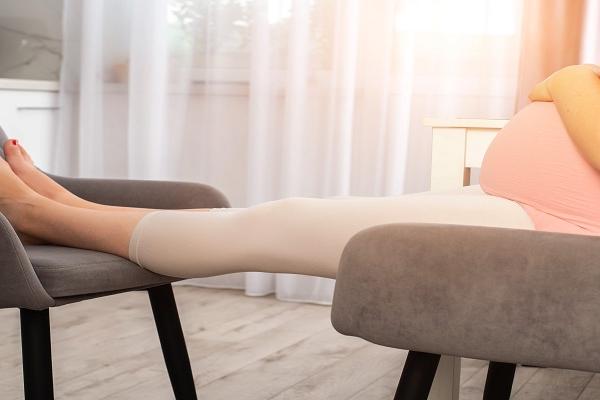Do Not Let Varicose Veins Be Your Nightmare During Pregnancy!
How to prevent varicose veins during pregnancy?
Varicose veins are one of the most common problems in pregnant women. If varicose veins are not taken during pregnancy, an increase in complaints can be observed. Pregnant women may be advised to wear socks for varicose veins during pregnancy. How are varicose veins treated in pregnant women? What do pregnant women need to do to prevent varicose veins?
Stating that the formation of varicose veins during pregnancy is observed in 40 percent of pregnant women, Yeditepe University Hospital Cardiovascular Surgery Specialist says, "With some measures to be taken during this period, the increase in varicose veins in pregnant women can be prevented."
During pregnancy, there is an increase in varicose veins depending on both hormonal changes and weight gain. According to research, 40 out of every 100 women who have had a pregnancy develop varicose veins. Approximately 15 percent of them become permanent after pregnancy. Three important factors are effective in the emergence of this picture: Hormones, especially progesterone, enlarge the vascular smooth muscles, especially in the late stages of pregnancy, the pressure of the uterus on the veins coming from the leg, and the increased amount of blood in the legs during this period. Due to the nature of body anatomy, varicose veins appear predominantly in the left leg, and their severity increases in the last weeks of pregnancy.
Complaints Increase If Varicose Veins Are Not Prevented During Pregnancy
Pain in the legs, especially cramps that occur during rest, itching, or burning around the varicose vein are among the problems caused by varicose veins. Yeditepe University Hospital Cardiovascular Surgery Specialist points out that complaints may increase especially in people who stand for a long time and do not take the necessary measures to prevent varicose veins.
How Are Varicose Veins Treated in Pregnant Women?
For the health of both the mother and the baby, special socks and lifestyle changes stand out instead of drugs or other treatments in the treatment of varicose veins during pregnancy. Reminding that varicose vein surgery is not usually performed during pregnancy, our specialist said, "However, although it is very rare, surgical procedures can be performed on vessels that are highly enlarged, painful, and candidates for bleeding. This decision is made by the physicians according to the general condition of the person. For this reason, the varicose veins that occur during pregnancy should be closely followed up by both gynecologists and cardiovascular surgery specialists. Precautions should be taken early for undesirable situations that may develop."
To Prevent the Formation of Varicose Veins...
Our Cardiovascular Surgery Specialist lists the lifestyle changes that need to be made to prevent pregnancy both varicose veins formation and progression as follows:
Exercise: Sports in which leg calf muscles such as morning and evening walks, swimming, and cycling are actively used to reduce the development of the varicose veins that occur during pregnancy. Try to do it regularly by determining the sport and its duration that is suitable for you in line with the approval of your physician.
Ensure weight control: Weight gain during pregnancy can be a factor in the formation of varicose veins as well as paving the way for many health problems. Therefore, pay attention to your diet and avoid high-calorie and fatty foods in order not to gain excess weight during pregnancy. If necessary, get help from a specialist. Also, cut down on salt consumption as much as possible as it will cause an increase in edema.
Do not sit for a long time: Sitting in one position for a long time and standing still also triggers the development of varicose veins. Therefore, pregnant women, especially those who have to sit and work or stand, should pay attention to this issue. Also, do not cross your legs in a seated position, and do not sit cross-legged.
Dress in loose, comfortable clothing: Do not wear tight clothing, such as belts or socks, as this may interfere with the circulation of the veins. Choose loose and comfortable clothes so that you can be as comfortable as possible. Also, do not wear high-heeled shoes as heel height will negatively affect calf muscle pump function.
Rest your legs: Resting the legs is also useful in preventing varicose veins. Lift your legs upward at every opportunity. Elevate with a pillow when resting or lying down. In addition, make sure that the lying position is on the left side and that your back is supported with a pillow from the back.


